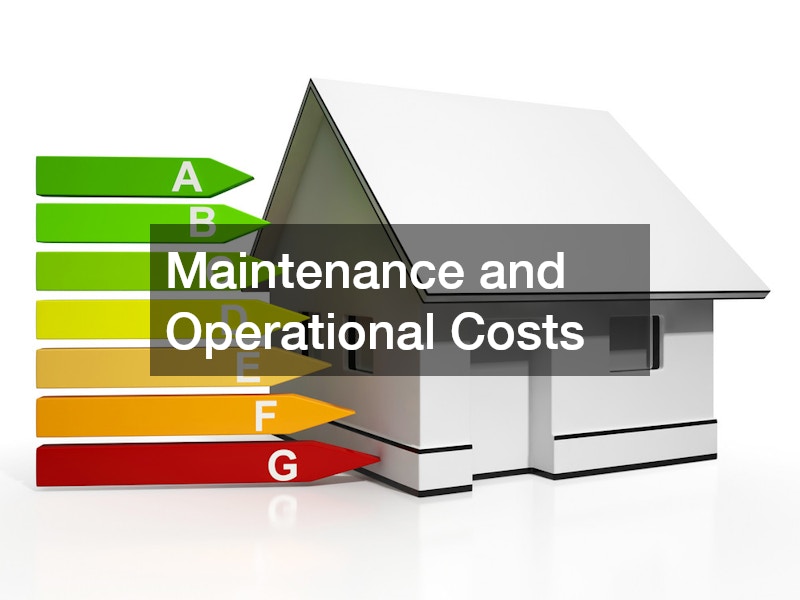In this article, we will explore the key considerations and steps you need to take to select the best local home generators. Understanding features, costs, and local regulations will guide you towards making an informed decision. By comprehensively assessing these factors, you can ensure that your choice of a home generator is both economical and suitable for providing reliable emergency power.
What Features Should You Look for in a Home Generator?
Power Output and Capacity
Evaluate the power output needed based on your home’s energy demands. It’s important to calculate the total wattage of appliances you want to power during an outage. Many homeowners misjudge this aspect, leading to either an underpowered or overly expensive generator.
Understanding your specific power needs is crucial to finding a generator that can effectively maintain essential functions. For instance, running major appliances like refrigerators and HVAC systems requires significant power. Consulting an electrician can help determine the exact kilowatt capacity your home requires.
Overestimate your capacity slightly to anticipate power spikes when appliances start up. Generators with higher capacity may cost more initially but can be lifesaving during extended power outages. Investing in a slightly larger generator provides peace of mind, knowing you have sufficient backup power.
Fuel Type and Availability
Analyze the pros and cons of different fuel types such as natural gas, propane, and diesel to determine what is most accessible and suitable in your area. For example, diesel generators are often more durable but can be noisy and require regular fuel delivery. On the other hand, natural gas offers a cleaner burn but is dependent on your area’s infrastructure and availability.
Propane is a popular choice due to its long shelf life and clean-burning nature. It’s vital to consider what fuel sources are most reliable during emergencies, especially if deliveries might be interrupted. Planning for these scenarios ensures your generator is functional when you need it most.
Some homeowners choose dual-fuel generators for versatility and enhanced reliability. This flexibility allows switching between fuels depending on availability and cost. Researching local fuel availability and pricing will help make a cost-effective decision.
Noise Levels and Installation Requirements
Consider noise ratings and installation constraints, especially if you live in a residential area with strict noise ordinances. Some generators can be quite loud and may disturb neighbors, leading to potential complaints or fines. Manufacturers usually provide decibel levels, which help gauge noise impact.
Installation requirements may also affect your choice; some models necessitate professional setup or specific placement regarding exhaust and airflow. Local regulations can dictate where your generator can be installed, which might affect your overall plan. Factoring these constraints can prevent future conflicts and ensure compliance with local laws.
Modern models are now designed to operate more quietly, with insulated enclosures and advanced mufflers. Researching and investing in these options may present a higher upfront cost, but pay dividends in maintaining neighborhood harmony. Ultimately, understanding noise regulations and installation requirements will help streamline the selection process.
How Much Do Home Generators Cost and What Are the Hidden Expenses?
Initial Purchase and Installation Costs
Understand the upfront costs associated with purchasing and installing a generator, including permits and contractor fees. Initial purchase prices vary widely depending on generator size, brand, and features. Installation is equally important and may require professional services to ensure compliance with electrical codes.
In addition to the generator’s base price, supporting infrastructure costs for transfer switches and concrete pads must be considered. These additional expenses can significantly raise the total cost of ownership. Getting detailed quotes from multiple suppliers can help budget accordingly.
It’s also crucial to check local codes for required permits or inspections, which can incur extra costs. Permitting sometimes involves fees that are not commercially advertised at the point of sale. Being well-informed can prevent unexpected financial burdens.
Maintenance and Operational Costs
Explore ongoing costs such as routine maintenance, fuel, and occasional repairs to keep the generator in prime condition. Routine maintenance includes oil changes, filter replacement, and battery testing. These activities are essential to prolong lifespan and guarantee reliability during outages.
Fuel consumption is another significant expense, especially during prolonged power disruptions. Keeping an emergency fuel supply can be expensive, depending on your choice of fuel and market conditions. Analyze your budget for sustaining these operations to prevent financial strain.
Unexpected repairs can add unforeseen costs to your generator’s ownership. Weather conditions and extended usage can wear down components like the alternator or fuel injection systems. Planning ahead for these challenges can save both time and money.
Selecting the right home generator requires careful consideration of features, costs, and logistical elements. By evaluating these aspects thoroughly, you can ensure a reliable power backup system tailored to your specific needs. Make informed decisions to balance cost-efficiency with the security that a well-chosen generator provides.
.



